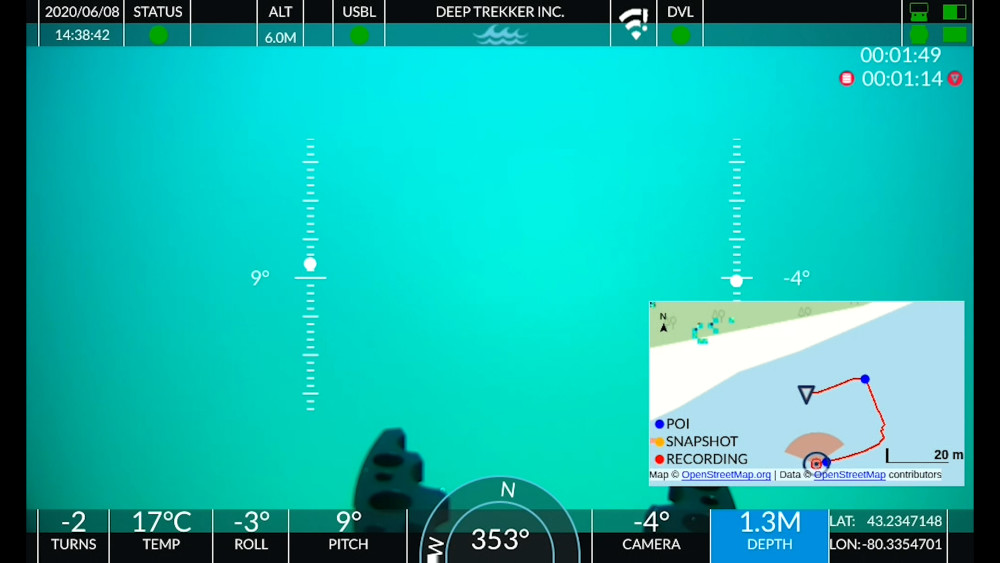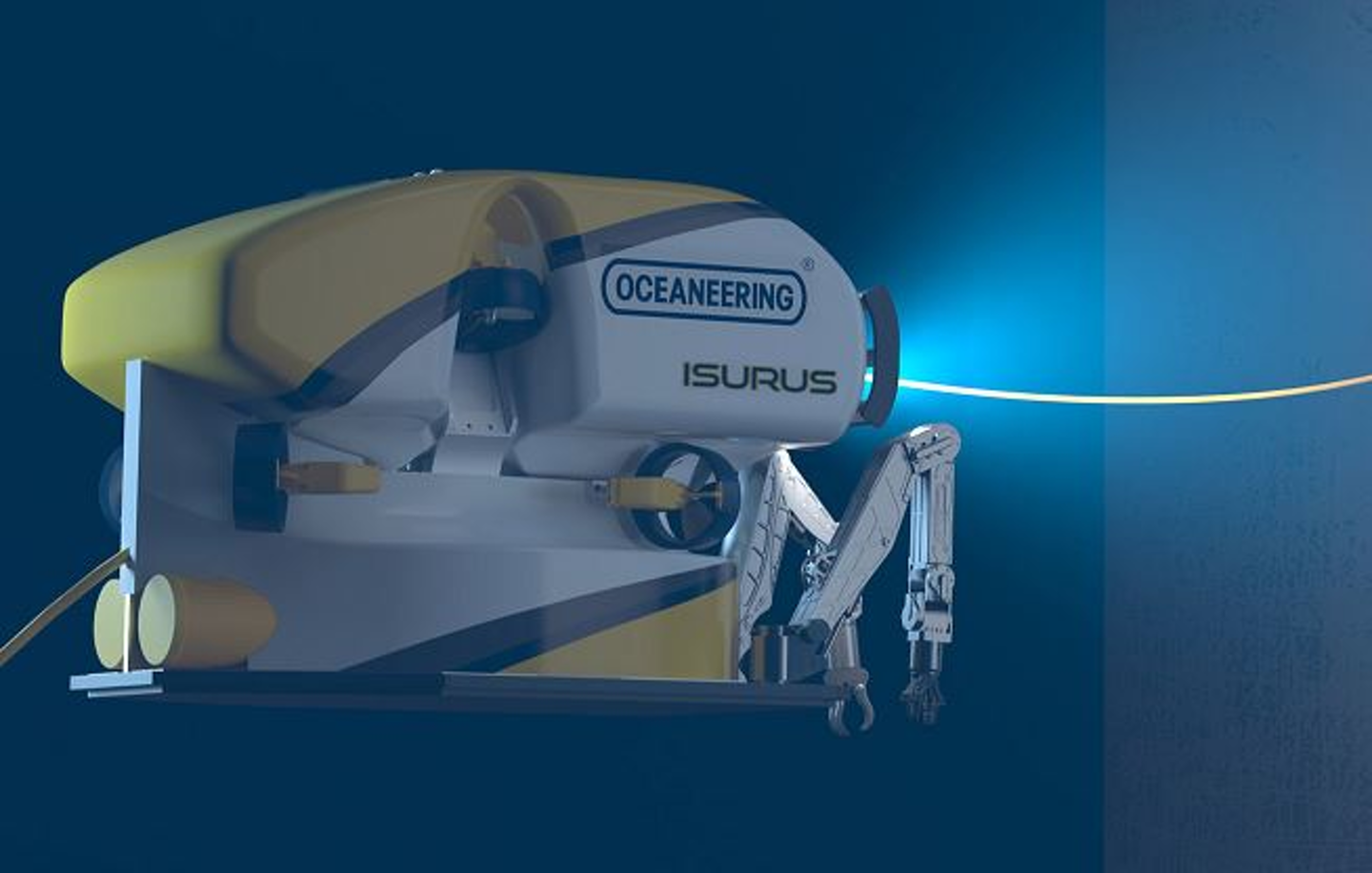Home › Forums › General › General Board › What Should Trainees Be Taught?
- This topic has 131 replies, 38 voices, and was last updated 16 years, 2 months ago by
Andy Shiers.
-
AuthorPosts
-
October 29, 2006 at 4:46 pm #318
Ray Shields
ParticipantAbove is a question to all those out there who have said to themselves "why are they sending these guys offshore without the correct knowledge" or "what the hell did they teach those guys!"
What should trainees be taught prior to going offshore? In an ideal worls, my idea would be to give them an initial 2 week introduction, send them offshore for a trip and then do a more intensive 2-3 week training course afterwards.
That way, they have an idea about what goes on offshore, and more importantly, what they don’t understand. It means they will have a better idea of what questions they want to ask during th course.
Unfortunately, this isn’t the ideal worls, and what they are going to get is a 3-4 week course then offshore. What should they be taught and what kind of level do you think they should be taught to? Training will always be limited by time/budget/facilities/access to ROV equipment etc. of course 😥
cheers, Ray
October 30, 2006 at 8:53 am #8662Andy Shiers
ParticipantInteresting question Ray ,
Like to see someone answer itOctober 30, 2006 at 12:06 pm #8663truered
Participantdefinetly can’t answer it but its a good suggestion to have a follow up course after a trip or 2. of course this would require some good planning from operations eh 😯
October 30, 2006 at 3:02 pm #8664TheBaron
ParticipantPin you ears back and listen!
October 30, 2006 at 3:27 pm #8665temp
ParticipantRay
I’m sure you must already know what is needed, having been involved with training yourself. People will obviously have their own varying views on training. Like you say, it’s the guys offshore that have to work with new trainees, but time and resources for trainee induction are obviously limited and can never be perfect.
I guess the purpose of an induction course, in any industry, is to familiarise new-starts with what the job involves, how to work safely in the specific work environment, what standards etc the company expects of them, and to enable them to fairly quickly become a productive member of a team under initial close supervision.
Assuming they already have some technical skills, training and practical experience as a mechanical/hydraulic or electrical/electronics tech, then a general familiarisation with the basics of the various vehicles you have so they at least know where most of the bits are on the sub and have an idea what they do, hazards etc.
Some basic specifics of underwater equipment e.g cabling/connectors, seals, pods, pressure housings, comps etc that may not have previously been encountered by many otherwise experienced techs coming from other industries.
Some basic cross-training and awareness in other trade areas to ensure that e.g. clankies know at least the basics of sparky stuff and v.v so they don’t do anything silly and hurt anyone or damage anything. Many industries don’t have the cross-over between trades that is needed for ROV e.g a mech tech on a platform or in onshore industry wouldn’t normally also be expected to work on elecky stuff and v.v.
Use of crane/A-frame and winch – safety, hazards, basic commands and comms procedure, typical launch/recovery procedure etc.
Safety with electricity, high voltage, hydraulic pressure safety, lock-off isolation procedures, overview of PTW, work at height/harness safety etc.
General safety awareness stuff to enable them to work on the back deck of a boat, on a drill rig (zoned areas etc) without hurting themselves or anyone else, or blowing anything up.General overview of different tasks done by ROV, buzzwords, terminology and abbreviations etc used. Basic logkeeping, operating video/dvd, basic commentary etc. Survey overview.
Like you say, it makes sense to get people back in after a few offshore trips to do more detailed training, such as a vehicle-specific course, manip training etc., once they know what the basic setup is offshore.
As ever, ongoing on-job training, experience and improvement with some sort of structure to it, is where most of the learning actually gets done.
I guess most of the main companies already do a lot of this already with the competence assessments and appraisals etc.Trouble with making initial induction training too basic and brief and mainly relying on picking most of it up in first few offshore trips, is the steep learning curve and potential for accidents during that period. Companies in any industry are legally obliged by health and safety law etc (certainly in UK/Europe) to ensure personnel are ‘trained and competent’. Difficult for a supervisor to give a trainee 100% supervision as you would need eyes in back of your head. So, if you know that they at least have been taught the essentials of safety, and what the system consists of and the job entails etc before going offshore, it takes a bit of the strain off the supvr and other team members.
Are these the sort of things your company induction courses covers?
temp
October 30, 2006 at 7:18 pm #8666Ray Shields
ParticipantTemp,
I have my idea of what they should be taught (obviously this has to be limited to what the Company is able to spend, hopefully some balance between the two).
I am just interested in what others thought about it. Biggest limitation I have is the availability to use an actual LARS and ROV system to show and run through with the guys, unless one of the boats happens to be in at the time.
With Fugro now owning Thales and Rovtech unfortunately this means the training has to be even more generic than before as there are now several different types of system (it was easy with Triton XLs and an MRV before!). So I can explain kind of how the PDU works, and the pushing of the joystick moves the thrusters, but I cant really be specific (which board, what levels to read where etc.)
I guess most of the main companies already do a lot of this already with the competence assessments and appraisals etc.
Yeah, you would have THOUGHT they would…! My lot are IMCA members, we have no IMCA competency. We have a company competency scheme – well, they have TALKED about the company competency scheme for several years now and still no sign of it. 12 years with the company – I’ve had, oooo, 4 annual appraisals. The Supervisors get hassled to do an appraisal every trip offshore for the guys. You go into the office to review appraisals for redundancy; oh, most of teh appraisals, no-one knows where they went.
And they wonder why we get apathetic 😆
Anyway, back to training. I’ll post the timetable for the training course on here once its finalised to give people an idea. At the moment its 4 weeks long, the last 2 weeks are mainly external courses plus a trip to Norway to play with a Seapup.
October 31, 2006 at 6:28 am #8667crusty
ParticipantI would say by the nature of the work its mostly on the job training they need, give them a comp log to take to work with them and have the supervisor take their training seriously
The biggest problem is taking on unskilled people as trainee’s, they should have a background in hydraulics, electrical or electronics before they come out or there is more training to do than you have time for and to many just want to be an operator and be payed as a tech or subeng.
they call em pilot/tech’s for a reason
if they have already learnt the basic skills and they’re not idiots then they be fineOctober 31, 2006 at 10:12 am #8668Ray Shields
ParticipantCrusty,
this goes back to a thread I had on the old forum – Is ROV Knowledge Being Lost.
The Supervisor/Sub Eng can only teach the Trainees what they know. Over the last few years a lot of people were "Fast Tracked" up to levels that they really shouldnt be at. How many Sub Eng or Supervisor have you met that doesnt know how to splice a cable 😆
You also have the problem of when do you let the Trainee practise. Not easy when the Client is breathing down your neck. The other solution was to send them out to Drill SUpport jobs. But then they may only get 1-2 hours flying round a BOP and thats it. But the office see "ah 2 trips out to a Rig, hes got loads of experience now" as they equate time attending with knowledge.
On the job trainig certainly has its place, but you have to give them a firm base on which to start.
October 31, 2006 at 11:55 am #8669JB2
ParticipantI guess the ideal world solution is the trainee as an extra man to observe and enquire when the shit is not hitting the fan!
At the moment Im continually in a battle with the office as the above ideal should equate with me having the easy time but in reality what I get is a trainee and a local instead of 2 pilot techs of each discipline. This results in me usually launching and recovering flying, fixing, paperwork, meetings, safety etc and constant office email intrusion into my off time of 8 ish hrs it seems! Then you get said trainees grumbling that Im a bad tempered old git who wont let them near anything! If I had the time and 1 pilot tech I can trust then I would depart some golden nuggets of info to them but it aint gonna happen if the office keep blaming the current market forces and sending me out with unfit techs with no background or locals with no English Language.
P.S. I hear there setting up a ROV training centre in India!!!
Guess they will be fighting the Poles for who can work the cheapest until the said doctors they probably are, remove me from my position for a few more Rupees.Getting more frazzled every trip TTFN
October 31, 2006 at 1:24 pm #8670temp
ParticipantRay
Obviously an induction course is just that, and more in-depth training courses can be done later to fit in between the actual real work, of course with the ongoing training hopefully happening offshore.
As it is often pot-luck for a trainee how much time can be spared offshore to train them and how amenable or effective individual supervisors are to do this, some sort of structured programme is necessary. Otherwise you can get the scenario where a year or so down the line someone maybe only has experience of being on the winch and doing the log, deck-checks etc.
The most important things are probably the saftey aspects, preferably taught initially in a benign training environment where any mistakes made are not going to get people killed/injured or damage equipment, done before going offshore for the first time.
I know a lot of people think it should all just be picked up on the job offshore, as that is the way they did it in the past (including myself). However, nowadays things are more legislated (especially for UK-based companies) and companies now have a legal (if not moral) responsibility to ensure people they send offshore can work safely from day 1 offshore.
Also they are more likely to become a productive team-member offshore quicker if they have had some pre-offshore trip familiarisation with the systems etc, which should improve efficiency of how the job goes. Time spent ‘babysitting’ – overseeing and checking a trainee offshore is largely unproductive time, so even from a purely financial viewpoint it also makes sense. Like you say though, difficult to do effective training in base if all the systems are out.
Realistic training isn’t cheap in any industry, but it is something which in the past seems to have been neglected a bit in the ROV industry. The trouble is nowadays the consequences of not doing it properly can be costly in operational terms, and also as a result of litigation should an accident happen. Even individuals (i.e the Trainers, Managers, Supervisors etc can be done for negligence etc). Certain aspects are now the law in UK, but companies are still sending people ofshore without e.g. Work at Height training (a requirement since 2005), High Voltage training, manual handling etc etc.
In my other contract work onshore that I do in between offshore trips, I can’t even set foot on a UK construction site without showing a multitude of bits of paper or plastic competence cards and courses (work at height, roof access, cherry-picker, scissor-lift, electrical competence, confined space entry to name but a few, plus various trade-specific bits of paper) – it’s an expensive business for someone self-employed, and considering most need renewing every 3 years.
Hope the course goes ok, rather you than me!
Cheers, tempOctober 31, 2006 at 4:01 pm #8671Ray Shields
ParticipantTemp,
blimey, you have time to do other work when you’re back home? I’m far too busy cooking, cleaning, doing the ironing, playing with the cats and being online here 😆
We will start out with testing their livers to capacity during the first week and their singing capabilities in the Crown & Anchor Karaoke on Friday night!
November 1, 2006 at 2:27 pm #8672rigwash
Participantwhat should trainees be taught??????
for a start how about:….how to empty the rubbish tin, how to keep the comp bottles filled, the oil barrels water proofed from the rain, the workshop tidy, the tech log filled in, how to wake up for shift on time and come out 30 mins earlier for the hand over, that grinding dust and hyraulic spare parts should be kept apart….blah blah blah
or maybe for one guy i met, how to put a hacksaw bade in the right way round, and that 110 volt appliances don’t run very long on 240volts
and maybe how to do what the senior guys tell you for a couple of years, especially if you are holding a degree in rocket science but it did not cover all of the above..
November 1, 2006 at 2:51 pm #8673Ray Shields
ParticipantRigwash,
ah. NVQ in Common Sense is a 20 year long course and is like a good taste in clothes – you either have it or you don’t!
But I’ll try mentioning it whilst holding a lump of 2 x 4 and see if they get the hint 😉
November 2, 2006 at 4:25 am #8674Anonymous
Guestdont teach them anything, keep the jobs for us……….
November 2, 2006 at 9:43 am #8675Andy Shiers
ParticipantHumbug !
Keep em as extra for a year !
You can also use them as a doorman or extra shelf when working on the sub 😆 -
AuthorPosts
- You must be logged in to reply to this topic.



